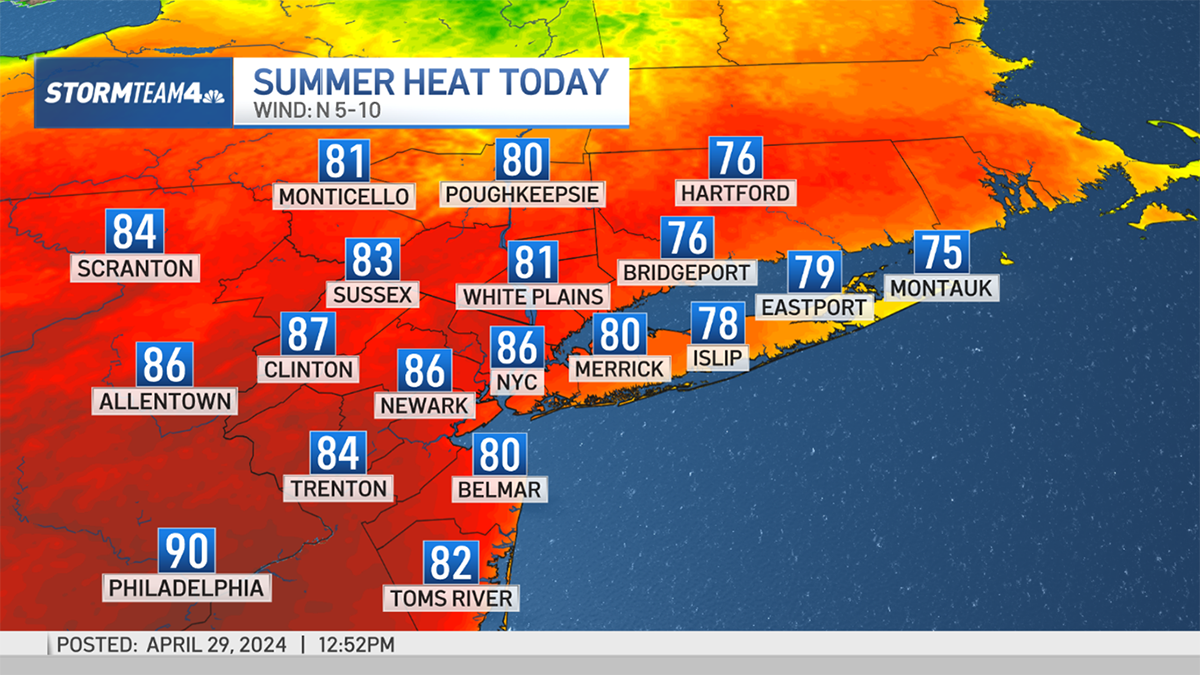What to Know
- The NJDEP held a press conference on Tuesday morning to discuss updates and safety tips during the current wildfire season.
- Last year was the most active fire year in more than a decade for N.J., with nearly 1,200 wildfires.
- As of this January, almost 220 wildfires have occurred burning a total of about 170 acres.
New Jersey authorities are warning residents of the potential risks and preparation steps as the state enters peak wildfire season this month.
Last year was the most active fire year in more than a decade for the Garden State, with nearly 1,200 wildfires burning over 18,000 acres statewide, according to the New Jersey Department of Environmental Protection (NJDEP).
Fourteen of the fires were considered major, with the most damaging one spanning over 3,400 acres in Ocean County — forcing 170 evacuations.
Get Tri-state area news and weather forecasts to your inbox. Sign up for NBC New York newsletters.
The NJDEP held a press conference Tuesday morning to discuss updates on the 2024 wildfire season, as the forest fire service teams provided the latest statistics and new tracking tools.
"New Jersey has some of the most volatile wildland fuels in the country," said William Donnelly, New Jersey Forest Fire Service Chief, who continued to note the fires by the numbers.
Since January 2024, almost 220 wildfires have occurred, burning a total of about 170 acres. In comparison, during the same time in 2023, the state had already reached over 350 fires with 970 acres burned.
News
In 2021, from Jan. 1 to April 8, New Jersey had over 360 wildfires burning a total of 500 acres.
This year, the state has executed more than 14,200 prescribed burns, or pre-planned and purposefully set fires to remove underbrush and organic material that could act as brush fire fuel.
The team brought up wildfire prevention tips for residents to be mindful of during the season, such as properly discarding cigarettes and other smoking materials, as well as not leaving campfires unattended.
"Protecting your home and other structures from wildland by creating defensible space, basically, space around your home that in the event of wildfire impinges on it, our folks [NJDEP] have room to work to get in between the fire and prevent any damage to improve the property," Donnelly said.
Low humidity, high winds and temperatures are perfect conditions for a brush fire to spread.
Gregory McLaughlin is the administrator for NJDEP, Forests and Natural Lands, and announced a new online platform called the Wildfire Risk Assessment Portal where land managers, town officials and residents can check their exact location for fire risk.
Later on Tuesday afternoon, firefighters responded to the scene of a brush fire burning in Elizabeth, New Jersey close to Newark Airport.
The fire is not impacting flight operations at the airport, according to the Port Authority, and the cause of the fire was not immediately clear.



